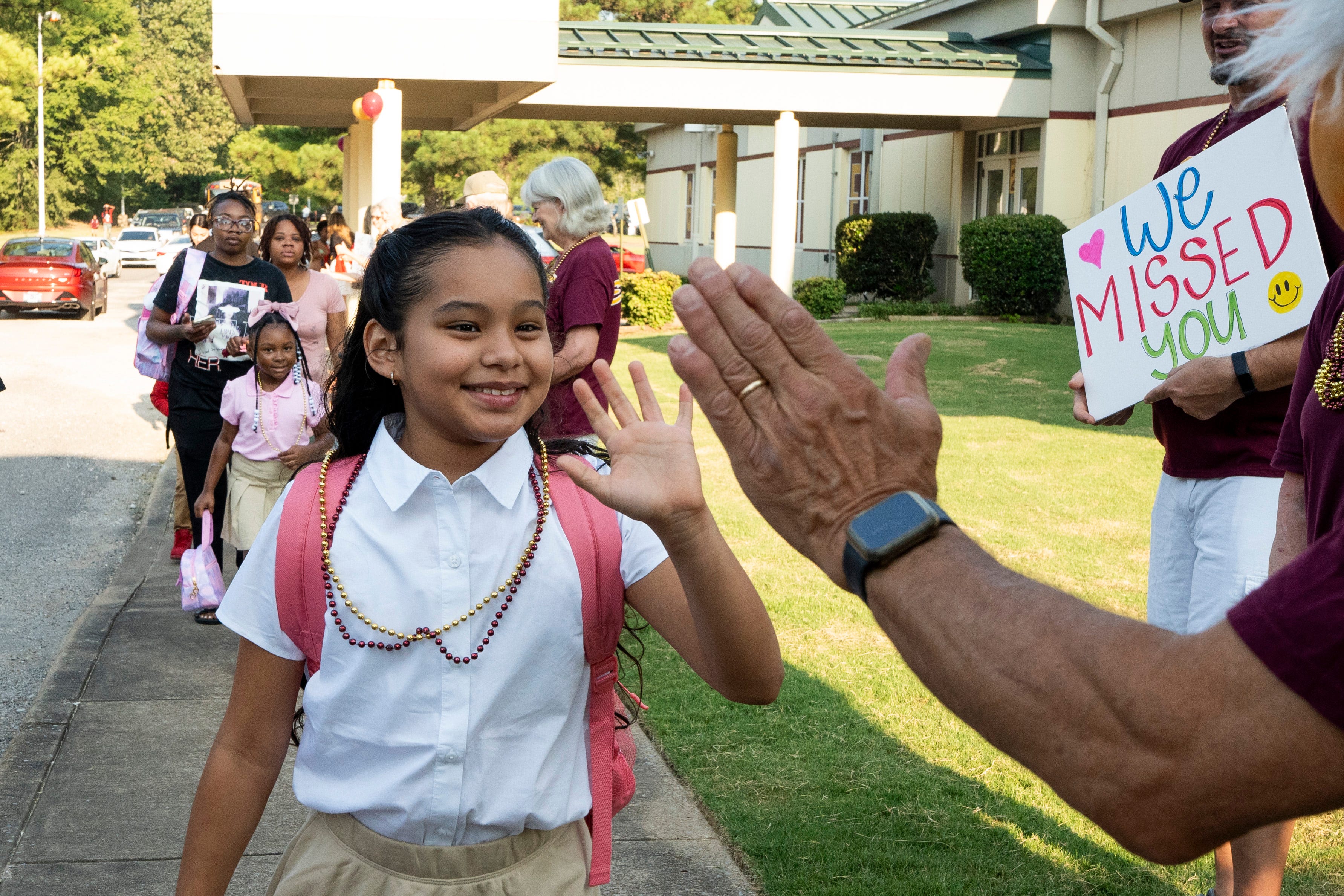
First Day of School in Memphis: Key Issues to Watch
As the 2025-26 school year begins, students across Memphis and the surrounding metro area are returning to classrooms. This marks a significant milestone for the Memphis-Shelby County Schools (MSCS) district, which is navigating a new era under interim Superintendent Roderick Richmond. His leadership comes after the controversial departure of former Superintendent Marie Feagins, setting the stage for a challenging academic year.
Richmond’s tenure has been marked by turbulence, including efforts to avoid state intervention, ongoing financial audits, and legal challenges from Feagins against members of the school board. As the new school year kicks off, several critical issues are expected to shape the experiences of students, teachers, and families.
Aging Infrastructure and Student Learning
One of the most pressing concerns is the condition of the district’s aging infrastructure. The average age of MSCS school buildings is 64 years, leading to persistent maintenance issues. Last year, high temperatures and malfunctioning HVAC systems forced the early dismissal of 12 schools on the first day of classes. While Richmond claims that no outstanding work orders for HVAC systems were reported ahead of this year’s start, concerns remain about the reliability of these systems.
Richmond noted that 10 new HVAC installations were either completed or nearing completion as of July 31. However, he also acknowledged there were some pending maintenance requests. The district is expected to announce a school closure plan by September 1, with a committee of lawmakers, community members, and real estate professionals working on a long-term facilities strategy. The Commercial Appeal will continue to monitor potential disruptions caused by infrastructure failures and how the proposed plan may affect students, families, and staff.
Teacher Vacancies and Staffing Challenges
Another key issue is the number of teacher vacancies. Richmond aimed to reduce the number of open teaching positions to below 300 by the start of the school year. However, as of July 31, the district still had 339 vacancies. While this is an improvement over previous years—where vacancies ranged between 552 and 185 in the weeks leading up to the school year—it remains a challenge.
To address staffing gaps, MSCS has partnered with Proximity Learning, a Texas-based company that provides certified teachers through video conferencing. The district has already spent approximately $17 million on this service, with a new $4.6 million contract approved in May. The Commercial Appeal will track the progress of hiring efforts and the role of virtual teachers in filling open positions throughout the year.
ICE Presence and Immigration Enforcement
The impact of immigration enforcement policies has also become a growing concern for families in the district. Under the Trump administration, increased ICE activity has raised fears among immigrant communities. Despite repeated assurances from school officials, reports of mass absences due to immigration enforcement have circulated in recent months.
To address these concerns, the district established a dedicated phone line for principals and staff to handle communications with immigration officials. Additionally, the website was updated with resources for students, families, and staff. Richmond has consistently denied any ICE presence on school grounds, emphasizing that policies remain unchanged since January. The Commercial Appeal will continue to report on how immigration enforcement affects student attendance and learning outcomes.
New Regional Superintendent Structure
Richmond has also introduced a new regional superintendent structure, dividing the district into five regions led by local leaders. This change aims to improve resource allocation, enhance responsiveness, and increase accountability. Each region will be overseen by a regional superintendent, with the iZone, a previously eliminated initiative, being reintroduced.
Richmond explained that the regional structure allows for more localized decision-making and better alignment of resources. The Commercial Appeal will closely follow how this new system impacts student performance, academic outcomes, and district spending.
As the 2025-26 school year begins, the focus remains on addressing long-standing challenges while ensuring a safe and supportive environment for all students. The Commercial Appeal will continue to provide updates on these critical issues throughout the year.